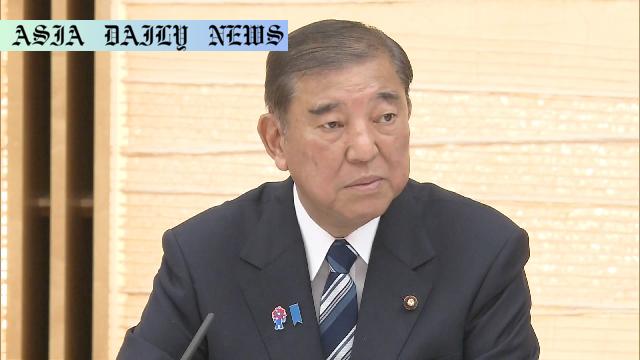Tariff Deal: Japan’s PM Ishiba highlights national interest win in US tariff discussions while safeguarding domestic industries.
- Japan’s PM Ishiba convened a meeting with party leaders regarding the US tariff deal.
- Ishiba emphasized safeguarding Japan’s economic interests and domestic industries.
- Suggestions from previous meetings were acknowledged in shaping the tariff discussion.
- Support measures for impacted domestic industries have been proposed.
- An agreement balancing both US and Japan’s interests has been reached.

Background of the Japan-US Tariff Deal
Japan’s Prime Minister Ishiba Shigeru took a decisive step towards fortifying the country’s economic interests by securing a tariff deal with the United States. The negotiations, initiated in February following discussions with US President Donald Trump, focused on redefining trade priorities, emphasizing investment over tariffs, and ensuring long-term sustainability for Japanese industries. This bold move comes at a time when global trade dynamics are constantly shifting, requiring nations to adopt a proactive approach to safeguard their commercial ecosystems.
The negotiation framework was rooted in securing mutual benefits, allowing both Japan and the United States to emerge as beneficiaries. On Japan’s part, presenting a clear case for prioritizing investments ensured the country’s industries were protected, laying down fertile ground for business growth while diminishing the immediate impact of imposing tariffs. The deal was not just transactional; it was visionary, as PM Ishiba focused on comprehensive solutions instead of short-term gains.
Strategic Goals and Outcomes
The essence of the Japan-US tariff agreement lies in its balanced approach to protecting domestic concerns while fostering economic cooperation with the United States. At the meeting with party leaders, Ishiba was explicit about the importance of safeguarding key industries that form the backbone of Japan’s economy. Suggestions from the ruling and opposition parties earlier in the consultation process played a critical role in shaping the deal, allowing for a more inclusive and considered approach.
The agreement is expected to also provide a boost to Japanese exports by ensuring that the country remains competitive in the global market. By focusing on investment and mutual growth, the decision to avoid tariff impositions enables Japan to strengthen its ties with the US while preserving its internal economic stability. Ishiba’s emphasis on addressing the concerns of opposition parties demonstrates political finesse, fostering a collaborative environment critical for economic governance in today’s highly interdependent world.
Implications for Japan’s Domestic Industries
Concrete measures to support impacted domestic industries were also outlined at the meeting, with PM Ishiba announcing consultations on financing and other aid mechanisms. Such measures showcase the government’s commitment to minimizing any negative fallout from the deal and ensuring focus on long-term growth rather than immediate challenges. The inclusion of financial support has been met with optimism by industry leaders who see this as a practical step towards boosting resilience.
Additionally, the protection of sensitive sectors—likely including agriculture, technology, and manufacturing—ensures they remain viable in the changing international environment. Japan’s approach reflects maturity in policy design, extending the net of benefits to its industrial and commercial hubs while managing international expectations.
Regional and Global Significance
The global community has been closely observing Japan’s trade policies, given their potential to set important precedents across the Asia-Pacific region. By engaging with a major economic power like the United States and achieving a mutually beneficial agreement, Japan has reinforced its standing not just as an efficient negotiator but as a thought leader in handling trade challenges.
In a world where trade tensions could potentially escalate rapidly, the Japan-US tariff deal is a testament to diplomacy, pragmatism, and vision. It demonstrates how carefully balanced agreements can shape the future of international commerce, fostering confidence among stakeholders globally.



Commentary
Celebrating a Diplomatic Milestone
Prime Minister Ishiba Shigeru’s ability to negotiate a highly consequential agreement underscores the value of diplomacy and strategic foresight. With both Japan and the United States standing to gain, the tariff deal exemplifies how nations can overcome challenges through collaborative efforts rather than adversarial tactics. This agreement will likely be viewed as a template for other economies navigating complex trade dynamics in the post-pandemic world.
Economic Prudence and Domestic Security
The concerns of Japan’s domestic industries have not been sidelined, which is a relief for stakeholders who feared neglect amid volatile global economic scenarios. Prime Minister Ishiba’s assurance of financial support and targeted consultations reflects an understanding that economic growth cannot come at the cost of domestic vulnerability. Such announcements also strengthen public confidence in leadership during turbulent economic periods.
A Balanced Trade Approach
Finally, the balanced approach embodied in this deal has wide-reaching implications. It sends the message that economic cooperation, even among competing powers, is very much feasible. Japan’s leadership must be credited for demonstrating pragmatism and resilience, which play key roles in ensuring the country’s competitiveness while safeguarding its values and economic structures.